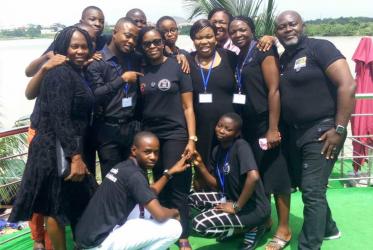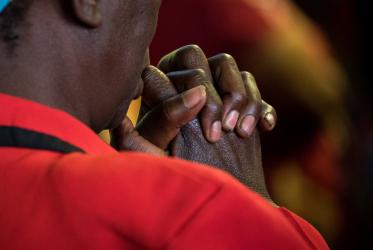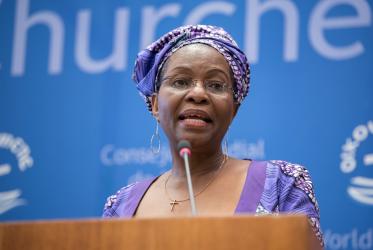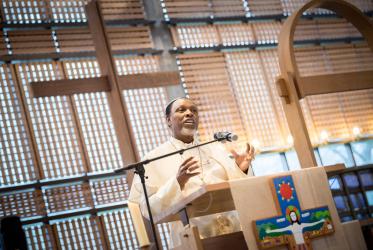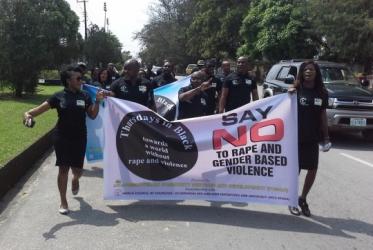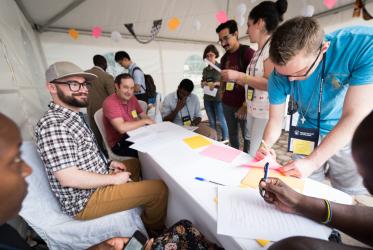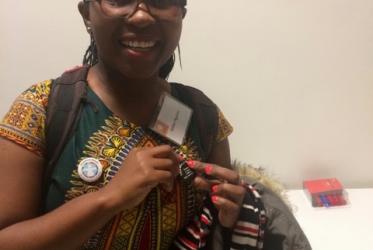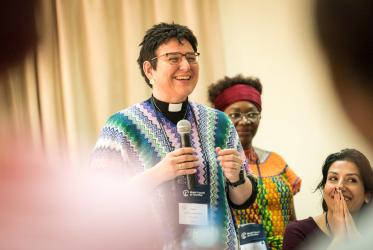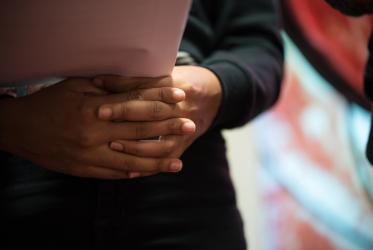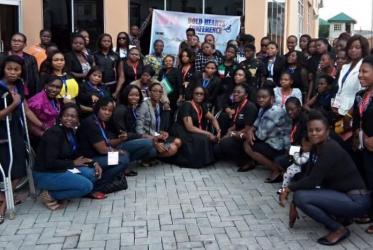Displaying 141 - 160 of 202
When you have nothing, you give your heart
09 May 2018
WCC “Pilgrim Team” to visit South Sudan
30 April 2018
In Nigeria, Thursdays in Black is flourishing
26 March 2018
‘Sokoni’ transforms marketplace into mission
13 March 2018
Women reflect on mission as foundation of life
07 March 2018
African women embark on pilgrimage in Burundi
29 November 2017
A safe space for sinners to change and for pain to be shared
03 August 2017
“Do you know where to search for your lost child?”
18 July 2017
Women in development create space for hope in Egypt
15 June 2017
